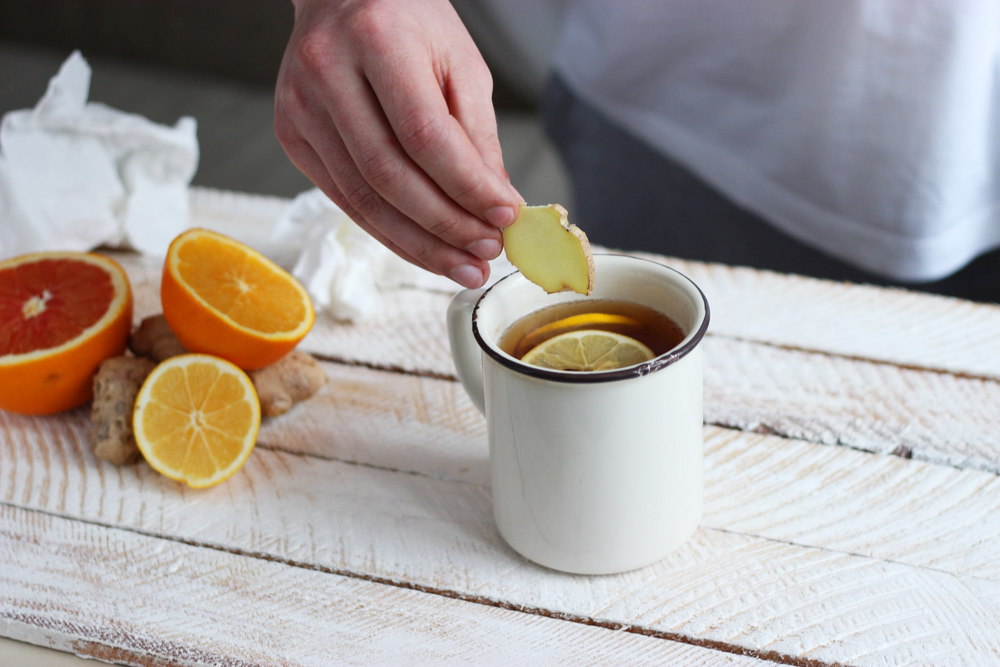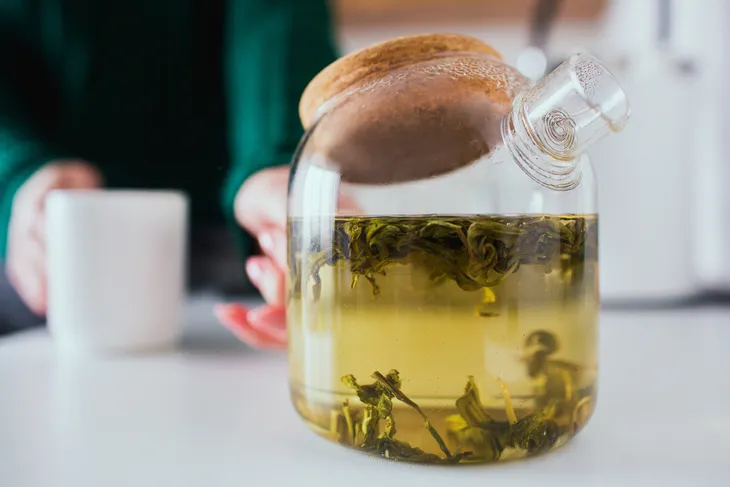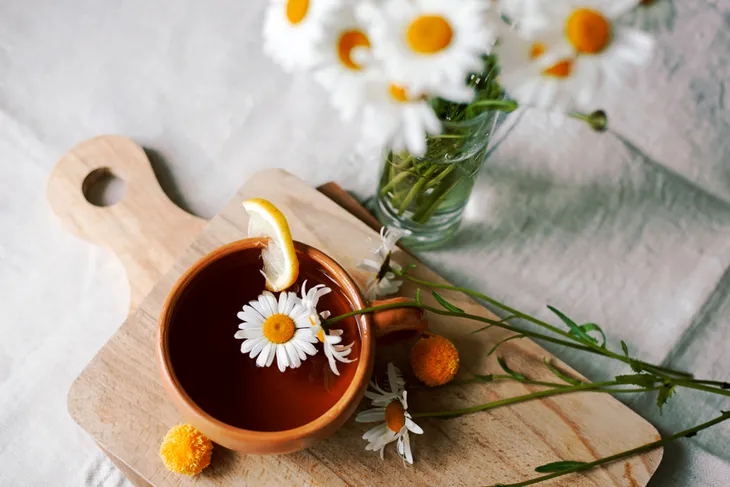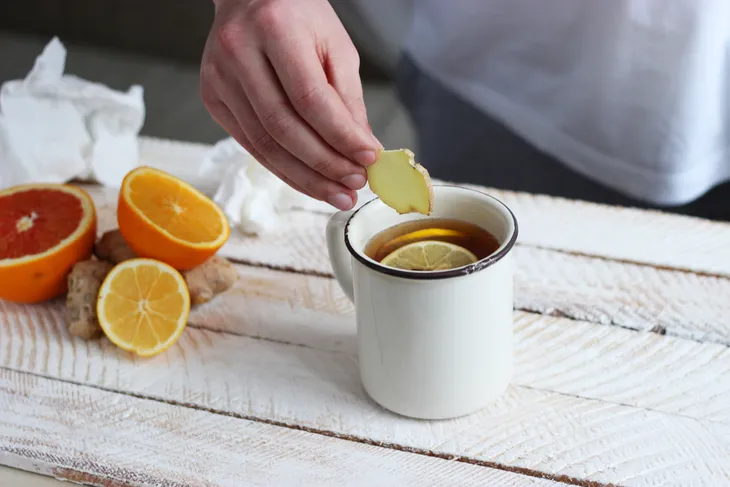Hello, is it tea you’re looking for? Luckily, the loose leaf tea craze is on the rise. With tea shops popping up all over, you’re offered adorable tea accessories to steep the perfect bevvy. Tea is an inexpensive drink that is packed full of flavors you know and love. Many can mimic your favorite desserts, and bring aromas of your favorite memories to life.
Besides the bountiful flavors and tastes, tea also boasts a vast ocean of potential when it comes to naturally-healing herbal health.While many choose teas based on flavor, you can also select a brew based on its health benefits…
Weight Maintenance: Green Tea
Studies are numerous on green tea and its effects on metabolism and weight loss, and the overall conclusion has yet to be determined, but it looks promising. A scientific study from Pennsylvania State University tested the effects of green tea on rats when combined with regular exercise. It noted an average abdominal fat mass reduction of 36.6 percent. But there is a small catch. The study found that you’ll need to drink 8 to 10 cups a day of green tea to have the full effect.
WebMD also talks about how green tea can fight diseases and boost metabolism, but notes that it can often be a “drop in the bucket” in terms of overall weight loss support. However, when making life changes that stick, often a swap like coffee for tea, is something that can add up greatly over time, without leaving you feeling deprived. Every little bit counts!
Sleepless Nights: Chamomile
As children we beg and plead to stay up late, to run off all levels of energy before crashing into pillows and dreaming until the morning. Then you grow up, and you BEG for sleep. You want more of it, you’re crashing into walls instead of pillows for the lack of sleep, and then laying awake hoping for sleep.
Just like children need calming before sleep to help them rest, so do you. Creating a routine with tea before bed to help soothe you and make way for a restful night. Chamomile tea has been long used as a natural sleep aid. A Japanese study, published by the National Institutes of Health, found that rats who were given chamomile fell asleep just as fast as those given benzodiazepine (a tranquilizing medication).
Common Cold & Allergies: Elderflower Tea
The common cold gained its name for a reason, it’s common, and it sucks. They can come on quickly and cold medicines can often leave many feeling woozy from side effects. If you’re suffering from a cold with a sore throat, tea is already a natural solution to soothing that pain.
Elderflower tea has antibacterial and antiviral properties, which makes it the perfect tea to brew while dealing with a common cold. Additionally, it can help alleviate allergy symptoms, and help boost your immune system. WebMD suggests using it as a gargle or mouthwash to relieve a sore throat and sinuses, as well as cough.
Stress: Lemon Balm Tea
Stress and anxiety can often strike when we least expect it. It can cause an upset stomach, increased heart rate and more. Often, it can’t be ignored, and is difficult to be prepared for.
Lemon balm tea comes from the mint family of teas. It’s a known stress-reliever, due to its natural chemicals that have a calming effect. Since it’s also from the mint family, it can help calm an upset stomach as well. So it’s the perfect go-to for cases of stress and anxiety. Interestingly enough, research from WebMD claims that lemon balm tea is also used as an aromatherapy aid for patients suffering with Alzheimer’s Disease.
Nausea: Ginger Tea
Nausea can strike for many reasons, including as an effect of medication, upset stomach, virus, or morning sickness from pregnancy. Finding a natural remedy for nausea is advisable, so as not to disrupt current medications. Or, if you’re pregnant, herbal remedies provide you with something you can actually take (since you’re banned from pretty much every other medication).
Ginger is a well-known anti-nauseant, but eating it plain isn’t often very appetizing for many. In the form of tea, however, ginger can be quite delicious. For pregnant women, this is a great time to swap out that morning coffee for a ginger tea, and get a start on your day while curbing nausea.
Bad Breath: Thyme Tea
An embarrassing issue that can lead to awkward social interactions, bad breath can be caused by diet, tooth decay, or bad gums, or a number of other contributing factors.
You may be surprised to know that thyme oil is an ingredient often used in the dental industry, and also in many mouthwashes, toothpastes, and dental varnishes because of the chemical thymol. According to WebMD, thyme is a lovely addition to your tea collection because this brew supports your oral health while working efficiently to kill bad breath germs. So go ahead and eat that garlic laced dinner with confidence!
Labor: Raspberry Leaf Tea
If you’re nearing the end of your pregnancy, you may be wondering how you can gear up for an effective and, ahem, easier labor (if there were to be one). Raspberry leaf tea has long been recommended by midwives as an effective way to gear the uterus up for labor and delivery, according to these findings from the National Institutes of Health. It’s also not to be mistaken for Raspberry FRUIT tea, it must be derived from the leaf to do it’s thing.
Although not proven, raspberry leaf is rumored to be a labor inducer, so it’s advised that you don’t start consuming this tea until the last weeks of pregnancy, just to be safe. Raspberry leaf works to tone your uterus, making it strong and effective in labor, potentially making your labor shorter.










